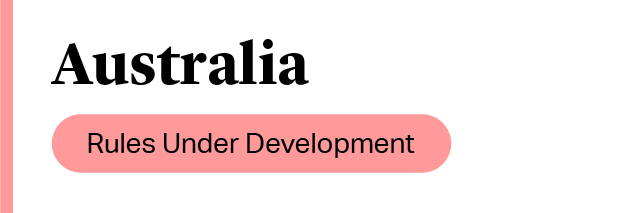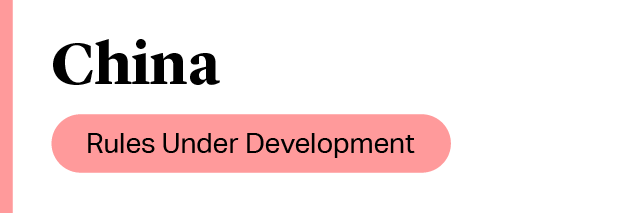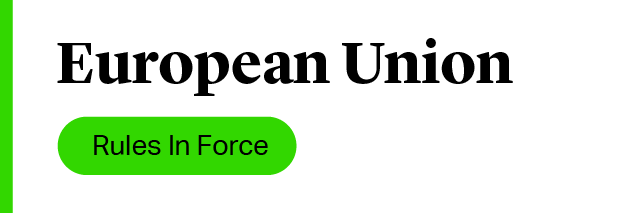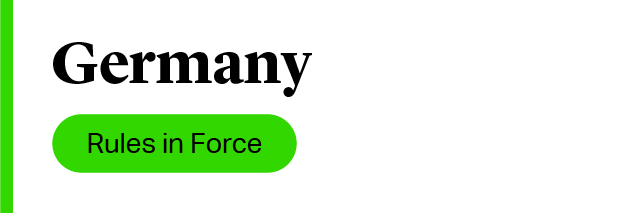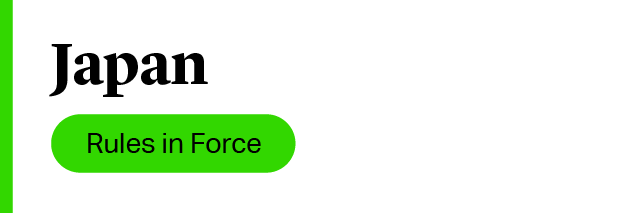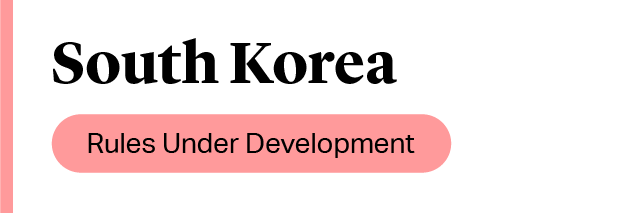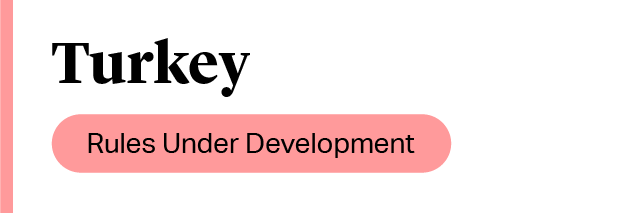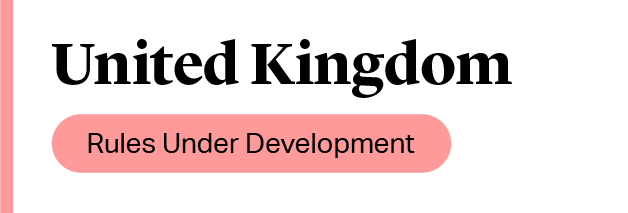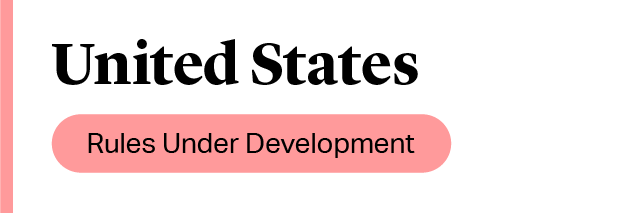Turkiye
There are currently no digital-specific competition law rules in force in Turkiye. In October 2022, the Turkish Government published draft amendments to the Turkish Competition Act, proposing to introduce new obligations that specifically target digital platforms. The government published revisions to the original draft in November 2023. The proposed regulations largely mirror the operation of and substantive provisions in the EU Digital Markets Act, though go further in certain respects. Pending passage of the new rules, digital markets remain an enforcement priority area for the Turkish competition authority under existing competition law rules.
Authored by Henry Mostyn, Patrick Todd & Goksu Kalayci
Updated as of December 2023

Turkiye
There are currently no digital-specific competition law rules in force in Turkiye. In October 2022, the Turkish Government published draft amendments to the Turkish Competition Act, proposing to introduce new obligations that specifically target digital platforms. The government published revisions to the original draft in November 2023. The proposed regulations largely mirror the operation of and substantive provisions in the EU Digital Markets Act, though go further in certain respects. Pending passage of the new rules, digital markets remain an enforcement priority area for the Turkish competition authority under existing competition law rules.
Authored by Henry Mostyn, Patrick Todd & Goksu Kalayci
Updated as of December 2023

-
1. What rules govern competition in digital markets in Turkiye?
-
There are currently no digital-specific competition law rules in force in Turkiye. Digital firms are subject to general competition and consumer protection laws applicable to all firms under the Act No. 4054 on the Protection of Competition (“APC”). There are no special rules or exemptions applying to competition in digital markets.
-
2. What is the status of any forthcoming digital regulation in Turkiye?
-
At the start of 2020, the Turkish Competition Authority (“TCA”) initiated a sector inquiry into e-commerce platforms. In its Final Report1, published in April 2022, it made policy recommendations applicable to a wider set of technology companies beyond e-commerce platforms.
Following these recommendations, in October 2022, the Turkish Government published its Draft Regulation on Amending Law on the Protection of Competition, revised by a later draft in November 2023 (the “Draft Regulation”). The Draft Regulation proposes amendments to the APC that in several places track the language of the EU Digital Markets Act (“DMA”) (see Question 5). The preamble to the Draft Regulations states that “the fast-paced changes in internet technologies in recent years have reshaped the digital market and consumer habits.”2
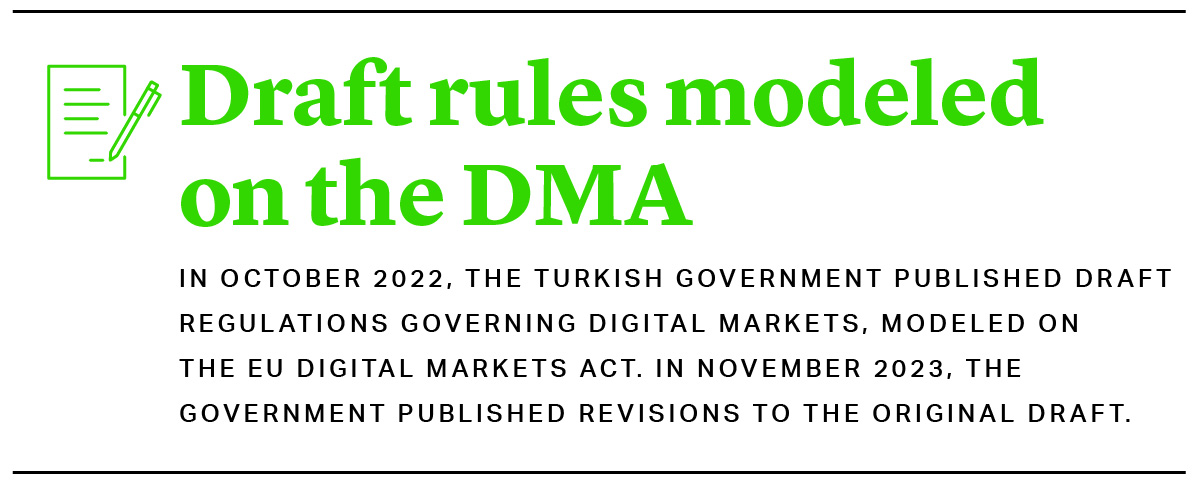
The Draft Regulation was issued for feedback from companies that are expected to be in-scope. There are, however, no updates on when the regulation is expected to take effect or what the final law will look like, if passed.
-
3. How is the Draft Regulation expected to be enforced?
-
The Draft Regulation proposes an enforcement mechanism similar to that provided by the DMA, albeit in several places it goes further. The TCA may choose to cooperate with relevant public authorities and institutions3 in monitoring obligations and enforcement.
Designation process
Only firms designated as undertakings with significant market power (“USMPs”) will be subject to the obligations and prohibitions proposed in the Draft Regulation. The process for designation is structured as follows:
- Notifications of USMPs. Firms that provide core platform services (“CPSs”) must apply to the TCA within thirty days of the thresholds in the relevant Communiqué (which is yet to be published) being exceeded.4 This application must contain the firm’s objections, if any, that despite meeting the thresholds, it does not enjoy significant market power. The TCA must review the application and make a USMP designation decision within sixty days.5 The TCA may also designate a firm as an USMP on qualitative grounds, even if the firm does not exceed the quantitative thresholds in the relevant Communiqué (see Question 4). A USMP designation is valid for three years. This period is extended by a further three years automatically if the undertaking does not apply to the TCA to dispute its designation at least ninety days before the end of the initial three-year period.
- CPSs. The Draft Regulation has replicated the list of CPSs from the DMA, which includes online intermediation services, online search engine services, online social networks, video-sharing platforms, number independent communication services, operating system services, web browsers, virtual assistants, cloud computing services, and online advertising services.
The Draft Regulation has also largely copied the definitions of the CPSs, but not always identically. - Relevant thresholds. The relevant quantitative thresholds that must be met for obligations to apply will be set by the TCA’s Communiqué, which has not yet been published. The Draft Regulation states that the quantitative thresholds will take into account: (1) annual gross revenues; (2) the number of end users or the number of commercial users; and (3) the length of time these numbers were maintained.
- Compliance. Together with its designation decision, the TCA must determine a reasonable period of time not exceeding six months for the USMP to fulfill the substantive obligations proposed in the Draft Regulation. The USMP may submit justifications explaining why it will not be able to fulfill the relevant obligations within the prescribed time period. The TCA must evaluate the justifications within sixty days, and may order compliance by the firm if it is not convinced by the justifications.
Enforcement process
- Notification of infringement. The TCA may determine that there is an infringement on its own initiative or in response to a denouncement, complaint, or request from the Ministry. The TCA must notify an infringement decision to the defendant firm, setting out any behavioral or structural remedies with which the firm must comply. The TCA may impose structural remedies only if it is clear that behavioral measures would not be sufficient.
- Failure to comply. If a USMP fails to comply with the obligations set out in the Draft Regulation twice or more in a five year period in relation to the same CPS, the TCA will have the power to ban mergers and acquisitions by that USMP in digital markets for up to three years6. This is said to protect against “the damages arising from repeated violations or to prevent serious or irreparable damages that may arise.”7 For other penalties imposable under the Draft Regulation, see Question 10.
-
4. Which firms would the Draft Regulation apply to?
-
The Draft Regulation is proposed to apply to firms designated as being USMPs. This is a similar concept to “gatekeeper” under the DMA.
USMPs will be designated, similar to the DMA, based on whether they operate a CPS and meet certain quantitative thresholds. The Draft Regulation has not yet set out what these quantitative thresholds may be, so it is not yet possible to assess which kind of firms will be subject to the Draft Regulation. As noted in response to Question 3, the quantitative thresholds will take into account: (1) annual gross revenues; (2) the number of end users or the number of commercial users, and (3) the length of time these numbers were maintained.

In USMP designation decisions, the TCA may take into account factors such as ownership of the undertaking, vertical integration and conglomerate structure, economies of scale and scope, lock-in and evolution impact, switching costs, multi-homing, user behavior, M&A activity, and quantitative thresholds to be set by the relevant Communiqué.8
While not completely clear, the proposed set of substantive obligations seem to apply not only to specific products (or CPSs) of the USMP, but to the whole undertaking designated as an USMP.9 This would mark a significant departure from the DMA, despite the obvious inspiration that has been drawn from it.
The rules proposed by the Draft Regulation apply to USMPs that provide CPSs to end users or business users located in Turkiye, irrespective of whether they have offices or establishments in Turkiye.10
-
5. What are the main substantive rules that govern the firms covered by the Draft Regulation?
-
Several of the rules appear to have been modeled on behavioral obligations in the DMA, but in places they go considerably further due to the Draft Regulation's uncertain and open-ended drafting. These include:
- Prohibitions on:
- Self-preferencing in ranking, crawling, or indexing (equivalent to Art. 6(5) of the DMA);
- The use of non-public data when competing with business users (equivalent to Art. 6(2) of the DMA);
- Conditioning the supply of goods and services offered to business users and end users on the supply of other goods and services offered by the USMPs (there is no equivalent DMA provision);
- Conditioning users' access to any CPS offered by the USMP on membership or registration to another CPS offered by the USMP (similar to Art. 5(8) of the DMA);
- Restricting business users from working with competing undertakings (there is no equivalent DMA provision);
- Restricting business users’ ability to enter into contracts with or submit proposals to end users (similar to Art. 5(4) of the DMA); and
- Combining users’ personal data obtained from one CPS with data obtained from other services the firm offers, and using such data in the context of other services, especially targeted advertising (the November 2023 draft added an explicit carveout where a user has given consent, similar to Art. 5(2) of the DMA).
- Obligations to:
- Allow users to uninstall preinstalled applications, switch to third-party applications or software, and easily change default settings (this is somewhat similar to Art. 6(3) of the DMA, though there are no express requirements to show choice screens);
- Provide business users with free, effective, continuous, and real-time access to end users' data produced by their use of CPSs (this is somewhat similar to Art. 6(10) of the DMA);
- Facilitate data portability (this is similar to Art. 6(9) of the DMA, which is about user data portability);
- Enable effective and free access to OS, hardware, or software features to allow for co-functionality (equivalent to Art. 6(7) of the DMA); and
- Provide advertisers and publishers, if they so request, with access to free information regarding the visibility and usability of ad portfolio, including pricing terms of bids submitted, the auction process and pricing principles, and the fee paid to the publisher for the ad services (similar to Art. 5(10) of the DMA).
While the prohibitions and obligations are largely similar to those contained in the DMA, certain provisions are significantly wider in scope in comparison. For example:
- The prohibition on rendering goods and services dependent on other goods and services offered by the USMP might, if enforced literally, impose a broad and absolute ban on tying or bundling any type of product.
- The prohibition on restricting business users’ work with competing undertakings may cover all contractual exclusivity agreements or loyalty arrangements, irrespective of the market share of the product.
- More generally, it is unclear whether the substantive obligations apply to specific CPSs provided by USMPs, or to USMPs as a whole. If the latter, the scope of the Draft Regulation would be significantly wider than the DMA.
- Prohibitions on:
-
6. Are there specific rules governing digital platforms’ relationships with publishers in Turkiye?
-
There are no rules in the Draft Regulation which regulate digital platforms’ relationships with publishers.
-
7. Will the TCA need to establish the effects of certain conduct in order to establish a breach of the rules?
-
No, there is no requirement for the TCA to establish the effects of conduct to establish a breach of the rules proposed under the Draft Regulation.
-
8. Can firms defend or objectively justify their conduct under the Draft Regulation?
-
The Draft Regulation does not contain any provisions that allow for objective justifications or defenses. In fact, it goes even beyond the DMA, which, as well as being subject to the overall principle of proportionality, has narrow defenses to cover public health and public security, and cases where the gatekeeper can demonstrate that complying with an obligation would endanger the economic viability of its operation.
-
9. What procedural safeguards does the Draft Regulation include?
-
Procedural details have not been included in the Draft Regulation. But given that the Draft Regulation contains a set of rules proposed to amend the APC, we would expect the procedural safeguards and processes set out under the APC to apply, such as the right to judicial review of TCA decisions,11 the right of access to file,12 and the right to be heard before the TCA makes a decision on remedies.13
-
10. What kinds of penalties or remedies can be imposed following a breach of the rules under the Draft Regulation?
-
The TCA may impose penalties on USMPs for non-compliance with the notification obligation and for breach of the substantive obligations. For breaches of substantive obligations, the TCA may impose administrative fines of up to 10% of the USMPs’ annual gross revenue in the financial year preceding the TCA’s decision (increasing to up to 20% if the USMP violates the obligations at least twice within the last five years with regards to the same CPS). The Draft Regulation does not specify whether the revenue generated in Turkiye or globally is used.14
The Draft Regulation expressly allows the TCA to impose structural remedies, seemingly even in cases where behavioral measures would be sufficient to cure the non-compliant conduct and its effects.15
Finally, the TCA may ban for up to three years the mergers and acquisitions in digital markets by USMPs that have violated the substantive obligations at least twice in the last five years with regards to the same CPS.
-
11. Has the TCA issued any guidance or reports regarding the digital regulation?
-
On April 14, 2022, the TCA published the Final Report in its sector inquiry on e-commerce platforms.16 The Final Report made policy recommendations, including ex ante regulation of USMPs.
In April 2023, the TCA published a working paper titled Reflections on Digital Transformation in Competition Law.17 The report identifies data collection, data portability and interoperability, self-preferencing, tying and bundling, and lack of transparency as practices that could result in competition law violations in the digital sector. In line with the contents of the Draft Regulation, the TCA recommends DMA-style regulation to address these concerns.
-
12. Is the new regime competition based, or does it target other types of conduct, such as consumer protection, moderation of content, or privacy?
-
The proposed regime is principally competition based, with many of the rules having been inspired by the DMA. The Draft Regulation touches on issues relating to data usage, but does not address other issues relevant to digital platforms such as privacy or content moderation.
-
13. What is the current enforcement practice with respect to conduct that is expected to be addressed by the digital regulation?
-
The TCA has been active in its use of existing enforcement tools against digital platforms. Some recent enforcement action taken by the TCA include:
- Investigation into Trendyol’s use of business data (July 2023). The TCA concluded an investigation against Trendyol in July 2023, finding that Trendyol uses business user data to compete with its business users, providing its first-party services with an unfair advantage. The TCA imposed a fine of 61 million Turkish Liras.18 Interim measures were in force from October 2021.19
- Investigation into Google online advertising services. The TCA launched an investigation into Google’s adtech services in June 2023.20 The investigation was announced soon after the European Commission issued a Statement of Objections against Google in its investigation into similar concerns.
- Fine against Meta for data sharing between platforms (November 2022). The TCA had found in a 2021 decision that WhatsApp’s terms of use and privacy policy requiring mandatory consent to data sharing was likely to result in serious and irreparable harm, and imposed interim measures to cease the roll out of the new terms of use in Turkiye. In October 2022, the TCA concluded that Meta’s data sharing practices raised barriers to entry and harmed competitors and fined Meta $18.6 million.21
- Investigation into Google Search (April 2021).22 The TCA fined Google over 296 million lira for abusing a dominant position in search engine services, including by favoring its own price comparison for accommodation and local search services.
- Investigation into Google Adwords (November 2020).23 The TCA found that Google had abused a dominant position by increasingly placing text ads above general search results. The TCA’s decision requires Google to offer text advertisements at the quality, scale, and location that will not exclude organic search results, and to submit compliance measures to the TCA.
-
14. Are there merger rules specific to digital platforms in Turkiye?
-
Under the Draft Regulation, the TCA may ban mergers and acquisitions in digital markets involving a USMP for up to three years if the USMP has breached the newly proposed obligations twice or more in five years in relation to the same CPS. Save for this provision, the Draft Regulation does not propose amendments to existing merger rules.
Merger rules applicable to transactions involving technology companies24 were amended in March 202225 and came into force in May 2022. Under the amended regime, the local turnover threshold does not apply to acquisitions of technology companies that operate in the Turkish market or are engaged in research and development activities or provide services in Turkiye. It requires mandatory notification even where the target company has no turnover, as long as the other notification thresholds are met.
Contacts
Henry Mostyn
Partner
Patrick Todd
Associate
Göksu Kalayci
Associate






